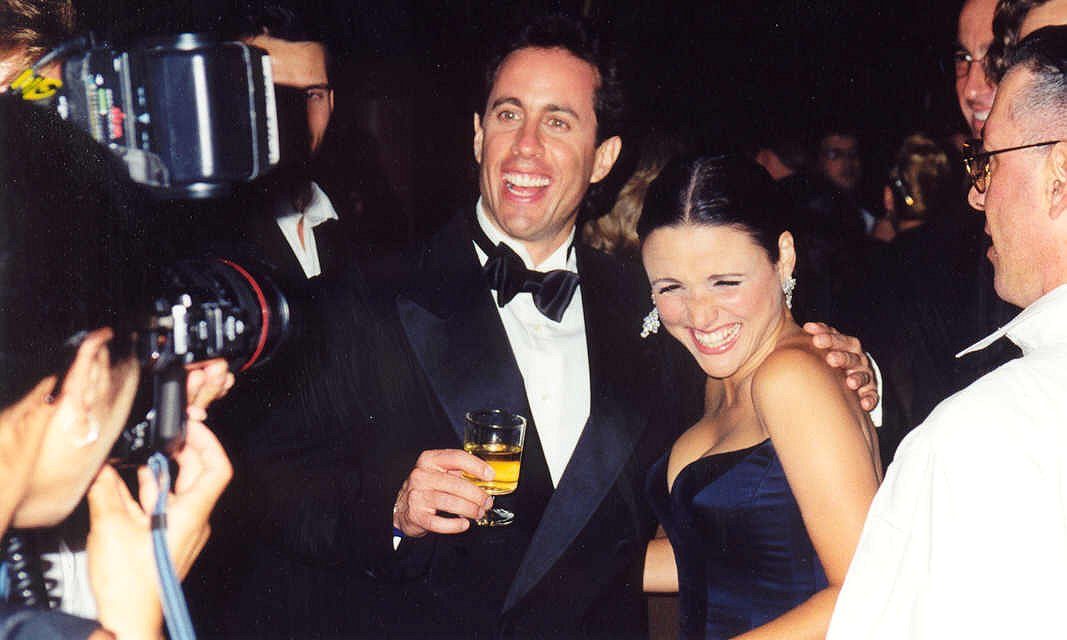‘What’s the deal with political correctness?’: Why Jerry Seinfeld is wrong about wokeness
TV comedy faces an existential threat, argues stand-up comedian and actor Jerry Seinfeld. No, not from a critical lack of grassroots funding or the rise of streaming services, but from the ‘extreme Left’ and what he terms “PC (politically correct) crap”. Seinfeld, who rocketed to international stardom with his landmark eponymous sitcom, was recently on a podcast where he expressed his anger and frustration at the stifling of creativity in the comedy industry to avoid offending certain groups or individuals.
Clips of his crusade against wokeness have been widely promoted by the Right, including the Twitter/X account “End Wokeness”, prompting a response from the company’s famously anti-woke owner, Elon Musk, who stated that we should ‘Make Comedy Legal Again!’. But the problem with Seinfeld and Musk’s rhetoric about the Left destroying comedy is that it is incredibly ignorant and mistaken.
Firstly, a broad point about the nature of comedy and wokeness. Comedy is an inherently dynamic concept; what is deemed comedically ‘acceptable’ never stays the same for more than a few years at a time. Take the case of legendary stand-up comic George Carlin. Carlin was well renowned for his social criticism of the US’ stance on race relations, the Vietnam War, and the War on Drugs, as well as his use of strong expletives in his routines. If a comedian was to criticise white supremacy in 2024, they would be lambasted by critics labelling them as “woke” and arguing that “you can’t say anything anymore”.
Contemporary politicians and pundits have latched onto political correctness as a means of waging their bigoted culture wars
In fact, Carlin’s skit ‘Seven Words You Must Not Use on Television’ (a list of swear words) resulted in a Supreme Court case (FCC vs Pacifica Foundation, 1978) which ruled that the Federal Communications Commission could continue to regulate language on television. Right-wing influencers often argue that political correctness is a relatively recent phenomenon fuelled by excessive liberalism and fear of offense, yet restrictions on what is acceptable in the media have been around for decades.
The issue of what is and isn’t socially acceptable goes back further than 1978. In the 1950s, Elvis Presley was threatened with jail time due to his ‘provocative’ dance moves that the authorities argued would turn young girls into sexual provocateurs. In 1967 the BBC banned the broadcast of two songs from The Beatles’ ‘Sgt. Peppers’ for similar reasons: ‘A Day in the Life’ for including the lyric “I’d love to turn you on”, and ‘Lucy in the Sky with Diamonds’ due to its alleged references to the psychedelic drug, LSD.
The primary difference between restrictions on social acceptability in the 1950s-70s and in the 2020s is that contemporary politicians and pundits have latched onto political correctness as a means of waging their bigoted culture wars. Whether Seinfeld’s comments were made with these intentions in mind or not, they have nevertheless lent themselves to the perpetuation of harmful political rhetoric against different minority groups including transgender people and people of colour. Politicians may stir up dangerous resentment against these communities, using the voices of “anti-woke” comedians, such as Seinfeld in the US and Ricky Gervais in the UK, to amplify their messages of bigotry.
So, we have established that Seinfeld is ignorant of the inherent, ever-changing nature of what is and is not considered socially acceptable. But is he also just plain wrong?
His comments are more than just a desperate attempt to cling to social relevance, they are fuel to a dangerous fire of bigotry and hatred that destroys the very purpose of comedy
Firstly, it is true that comedy certainly leaves less room for overtly racist, misogynistic, and homophobic jokes in the 21st century, but is that really much of a loss? Is it truly a bad thing that one’s jokes can no longer incite hatred against oppressed people? Secondly, there are still many instances where comedy, particularly on TV (which is what Seinfeld’s criticisms are primarily aimed at) incorporates offensive topics into punchlines, many of which go uncriticised by those who may be offended.
For example, the FX show ‘It’s Always Sunny in Philadelphia’ is the longest running live-action American sitcom of all time, running since August 2005, and often uses these offensive elements to great comedic effect. The sixth episode of the twelfth season, Hero or Hate Crime? exemplifies this point, with the entire plot revolving around Frank’s (Danny DeVito) use of a homophobic slur. The show deftly uses jokes (which not only include the homophobic slur, but also a white character’s use of the N-word) to explore the implications of slurs and political correctness. IASIP is a prime example of offensive comedy being used in a way that tackles these social issues in a contemporary context whilst also being extremely funny and successful – Hero or Hate Crime? currently stands as the fifth highest rated episode of the show on IMDb. The show’s potentially offensive humour is a testament to its incredible longevity, and its ability to adapt to changing social expectations whilst continuously blurring the line between the offensive and the comedically acceptable.
Seinfeld, however, has had no such success in recent years. His new Netflix movie about the creation of the Pop-Tart, Unfrosted was a critical and commercial bomb, meaning his primary source of popularity continues to be a show that ended a quarter of a century ago. His comments are more than just a desperate attempt to cling to social relevance, they are fuel to a dangerous fire of bigotry and hatred that destroys the very purpose of comedy – to make people laugh. If Seinfeld truly doesn’t believe you can make good comedic TV without it being blatantly offensive, is he as good a comedian as people seem to believe?

Comments (1)
Fantastic article